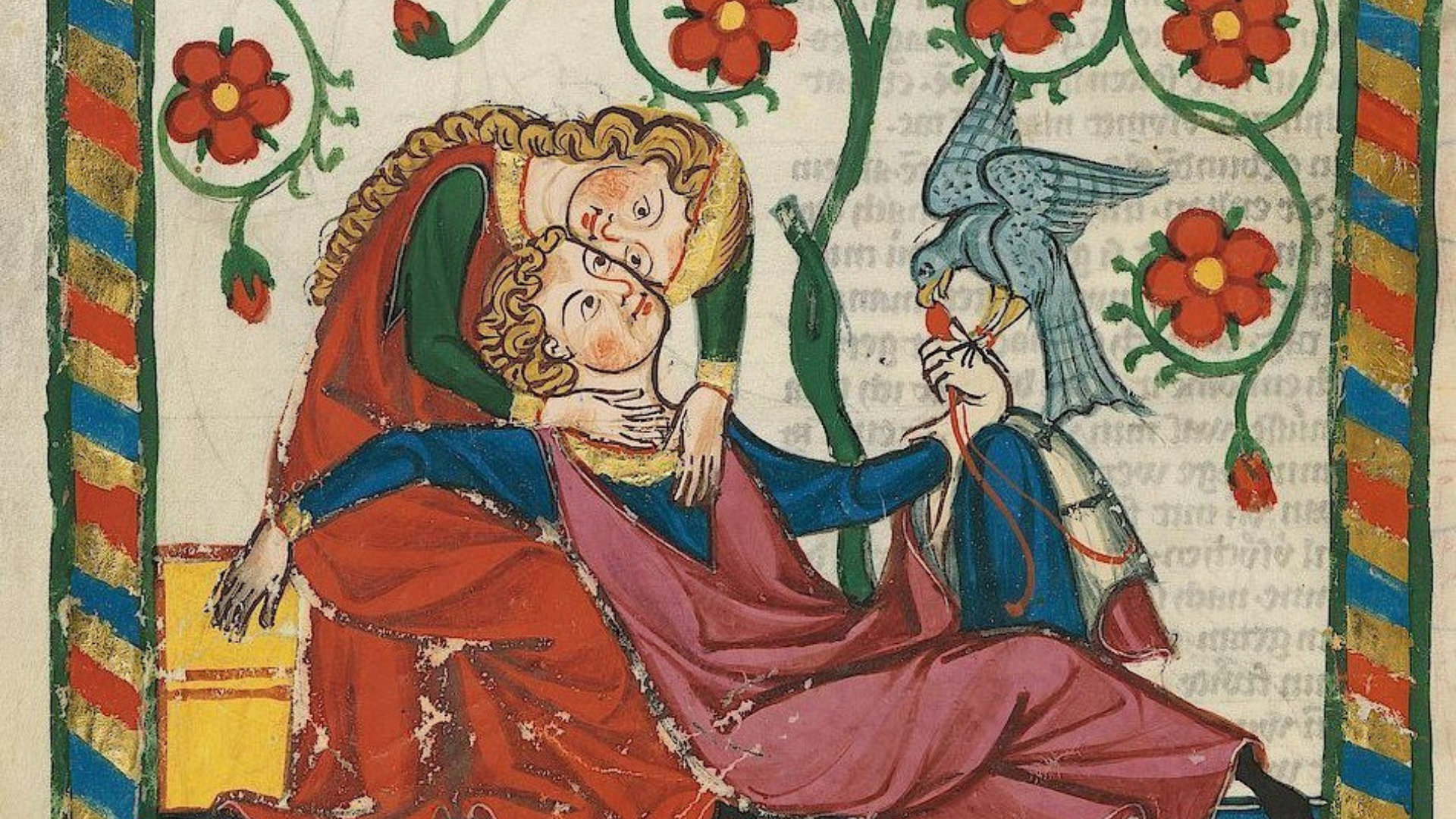For the Birds: Do We Choose Who We Love?
February 13, 2018

Emotions and science were closely linked in medieval literature.
Do we get to choose who we love? The medieval poet Geoffrey Chaucer was one of the first writers to associate Valentine’s Day with romantic love. In a poem called “The Parlement of Foules,” or “Parliament of Birds,” birds search for partners on St. Valentine’s Day with the help of Lady Nature, and this becomes a way for Chaucer to consider questions about free will and love.
In her newest book, “Nature Speaks: Medieval Literature and Aristotelian Philosophy,” Associate Professor of English Kellie Robertsonexplores similar themes, tracing the relationship among emotion, science and morality in medieval literature and philosophy.
Why is love such an important focal point for thinking about the natural world?
In our contemporary moment, love and science are seen as opposites. We view love as something internal and psychological, whereas science is concerned with the external, material world. In the Middle Ages, both poets and scientists saw a closer link between our emotions and the natural world. This way of thinking helps us reconsider questions that are still important to us today: What is our place in nature? If outside forces and conditions affect our emotions, to what extent do we have free will?
You write about Chaucer in your book. What does he have to say about the relationship between love and free will?
For Chaucer, and for medieval writers in general, knowledge of love cannot be separated from knowledge of the natural world. At the end of his poem, “The Parliament of Birds,” all of the birds are paired off with the exception of one beautiful lady eagle, who refuses to pair up with any of her three suitors despite pressure from Lady Nature. The poem suggests that most of the time, our desires are in sync with nature. But sometimes, as in the case with the lady eagle, our desires can actually override nature.
What inspired you to write this book?
This book was inspired by the simple observation that modern science and poetry are seen as very different endeavors today, ones that rarely overlap. I wanted to know why the two enjoyed a much closer relationship in the medieval period and think about what has been lost as a result of separating these types of knowledge. This split has far reaching consequences, which is why it is important to look at how medieval writers approached these issues. What kinds of questions can we ask if we think about the human and natural worlds as being more closely linked together?
Image: The poet Konrad von Altstetten embracing his lover. Codex Manesse, UB Heidelberg, Cod. Pal. germ. 848, fol. 249v (via Medievalists.net)

